How Swiss cheese is made
Categories: Europe | Food and Drinks | Production
By Pictolic https://pictolic.com/article/how-swiss-cheese-is-made.htmlIn Gruyères, in Western Switzerland, from mid-May to mid-October, Müritz cows graze on excellent mountain pastures, from whose milk the world-famous Gruyère cheese is produced. Already the fifth generation of this family is engaged in the production of cheese according to an old recipe. The cheese is made in the form of huge heads, each of which weighs from 25 to 40 kilograms, after which it is sent to ripen for at least six months. During the season, up to 200 heads are made from unpasteurized milk, which cheese makers sell on the local market. Gruyere cheese itself began to be made about five hundred years ago, when peasants living high in the mountains faced difficulties in transporting milk to the valleys. Then they decided to cook the cheese on the spot and then leave it in the caves. The result is a variety with a sweet-salty taste, the aroma of which changes with age and becomes more intense. The cheese heads themselves are gradually covered with cracks.
In the process of cooking, farmers first heat milk in a copper vat to 34 degrees, add liquid enzyme to ferment, and separate the whey from the resulting curd. After that, the curd is salted and heated to 43 degrees, and then placed under a press and sent for ripening.
It is noteworthy that even the requirements for the storage of Gruyère are spelled out in Swiss law in order to comply with the original "cave" conditions, although now the cheese is ripened in special cellars.
Reuters photographer Denis Balibouse covered the work of cheesemakers throughout the summer grazing season. In this issue you will find his photographs.
(Total 23 photos)
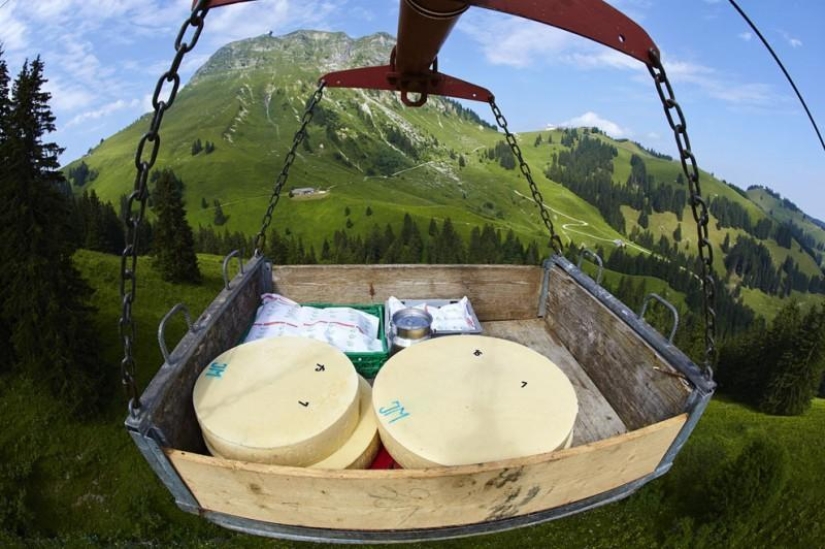
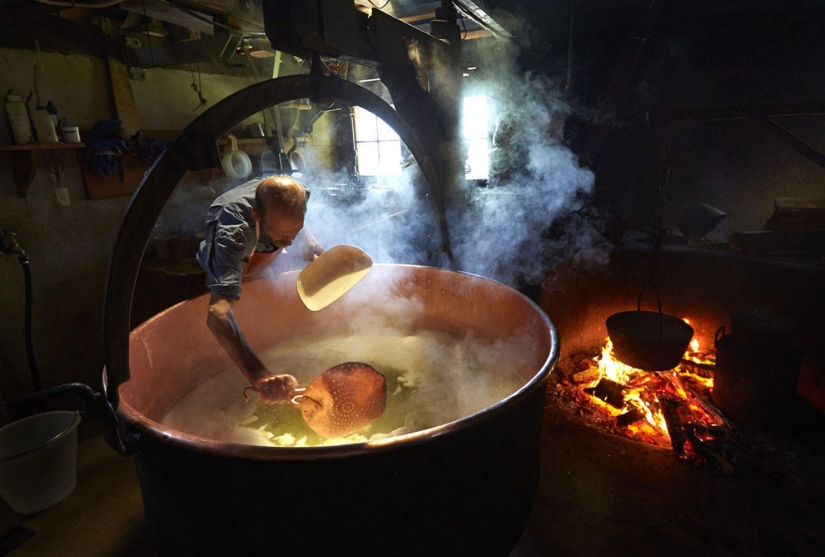
1. Cheese maker and farmer Jacques Müritz prepares whey in Gruyère, Western Switzerland on June 13, 2013.
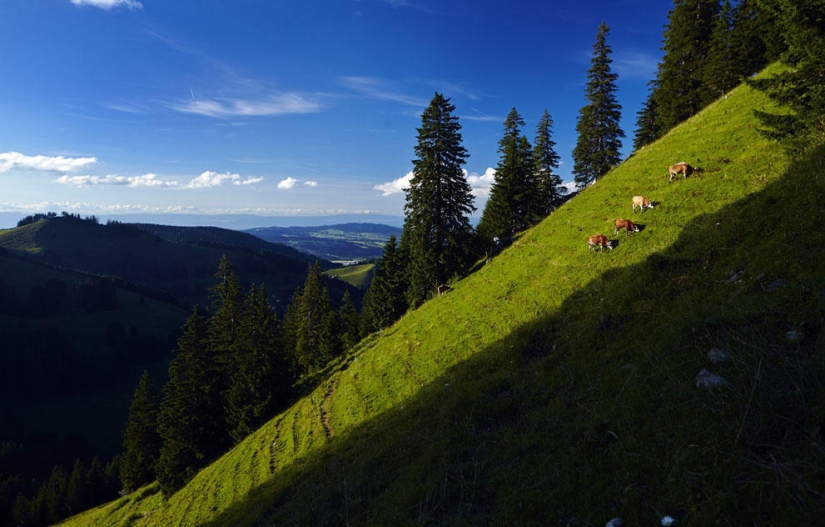
2. Cows graze in a field on a mountain pasture in Gruyères, Switzerland, on July 30, 2013.
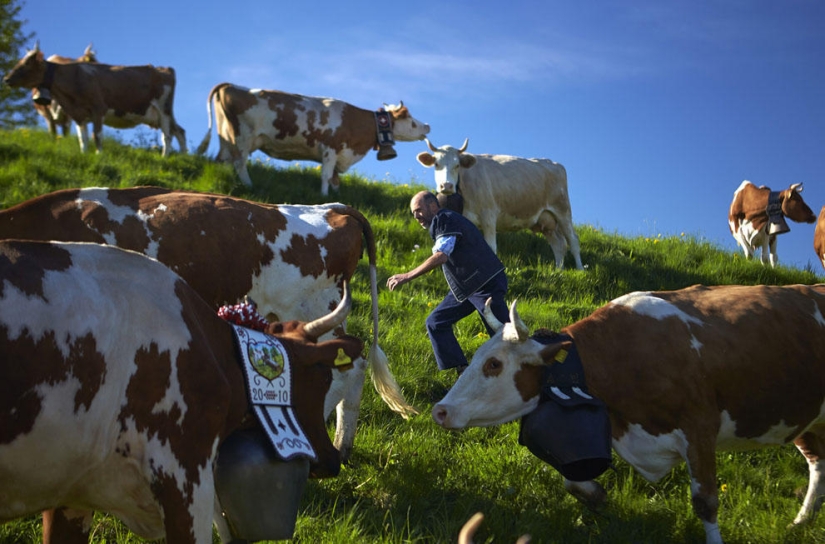
3. Farmer Jacques Mürtz gathers his cows on the first day of the season in Gruyères, Switzerland on May 8, 2013.
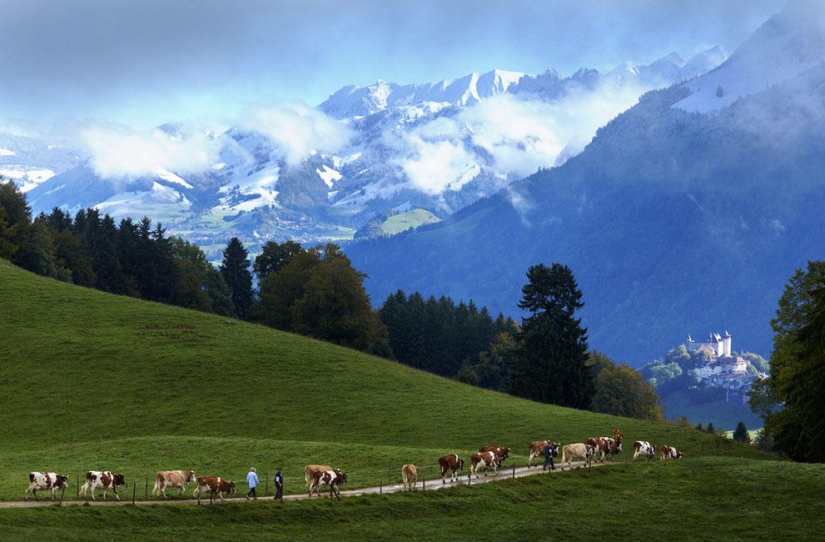
4. Members of the Müritz family and their workers walk along the path towards the Château Gruyère with a herd of cows for "rindia" (a dialect word meaning return to the plain) on the last day of the season in Gruyere, October 12, 2013.
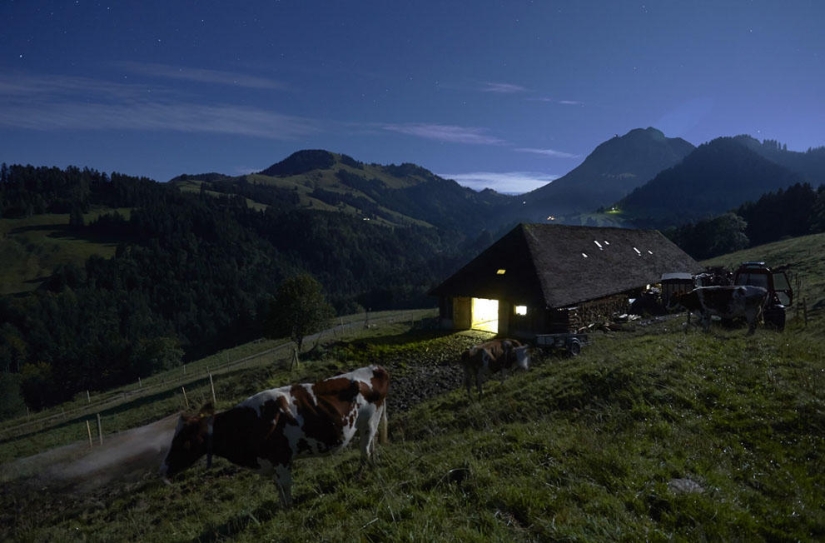
5. Cows stand in a mountain pasture after morning milking under a full moon in Gruyères on September 20, 2013.
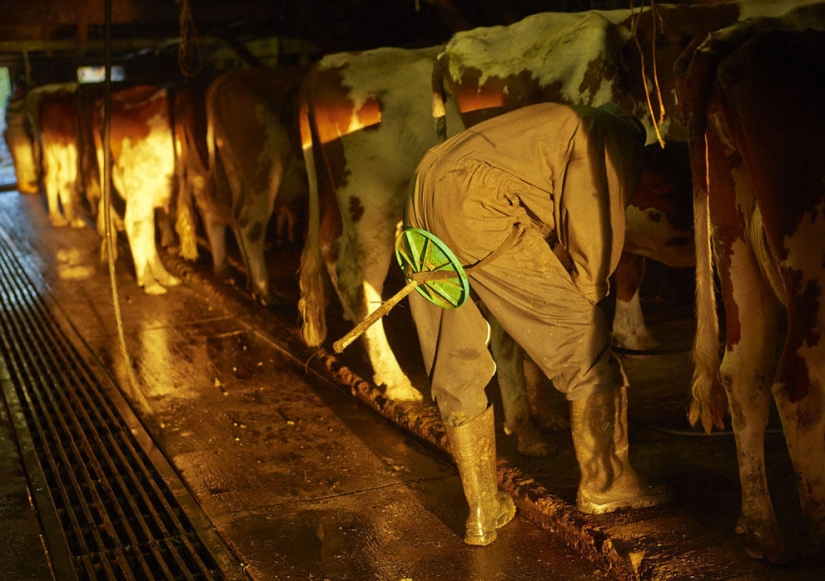
6. Cheese maker and farmer Alexander Müritz milks cows in a pasture in Gruyères, June 13, 2013.
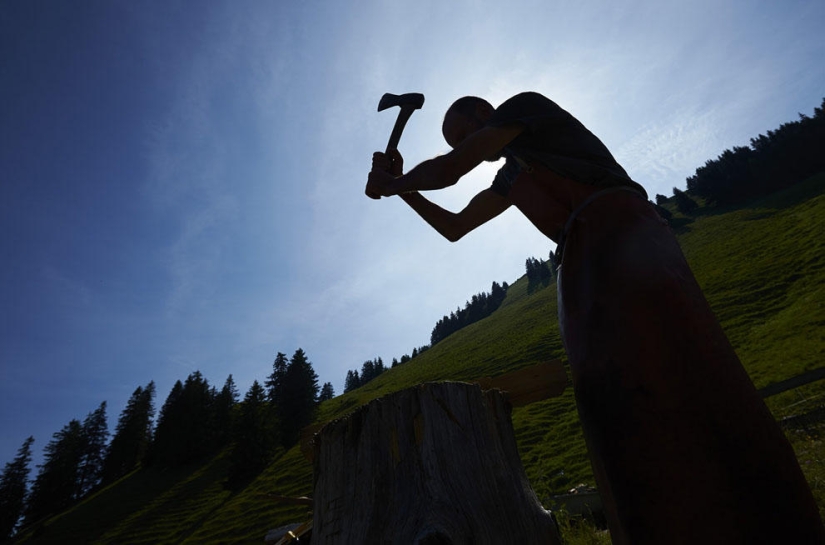
7. Cheesemaker Jacques Müritz chops wood for a fire in a mountain pasture in Gruyères on July 10, 2013.
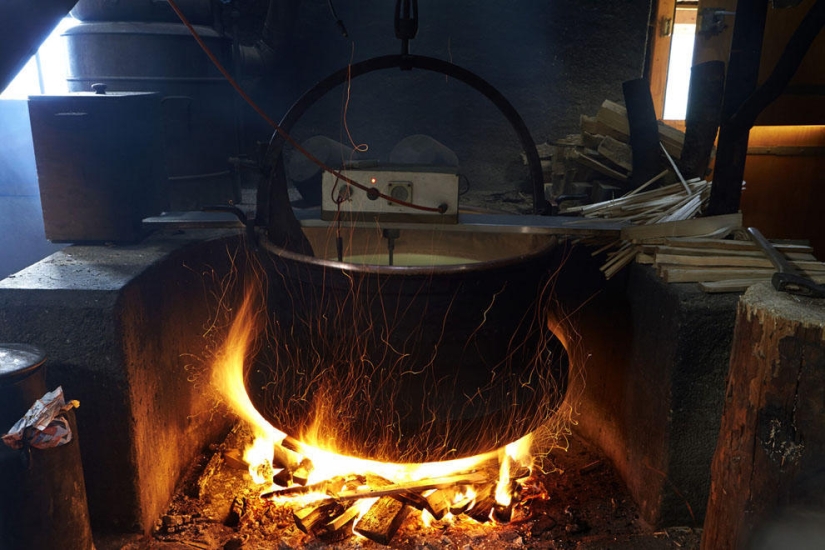
8. Milk is heated in a huge copper vat, like hundreds of years ago, on September 20, 2013.
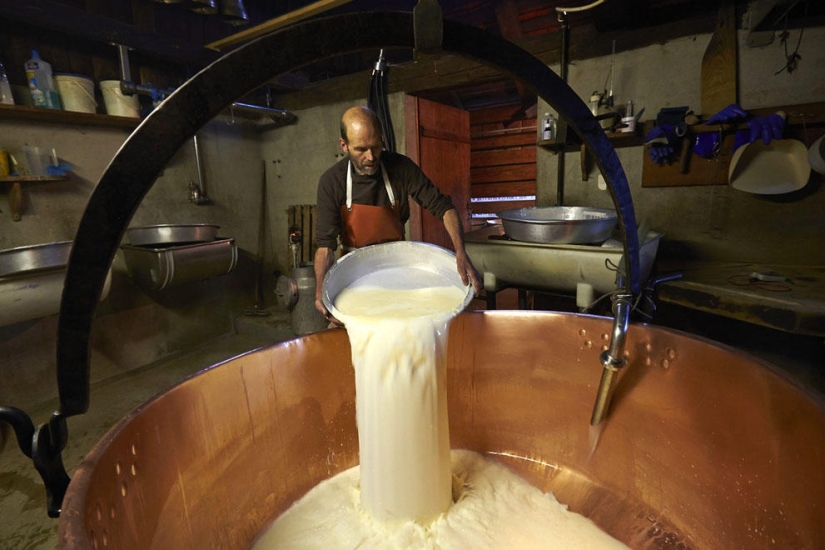
9. Jacques Müritz pours a bucket of skimmed milk into a copper vat on June 13, 2013.
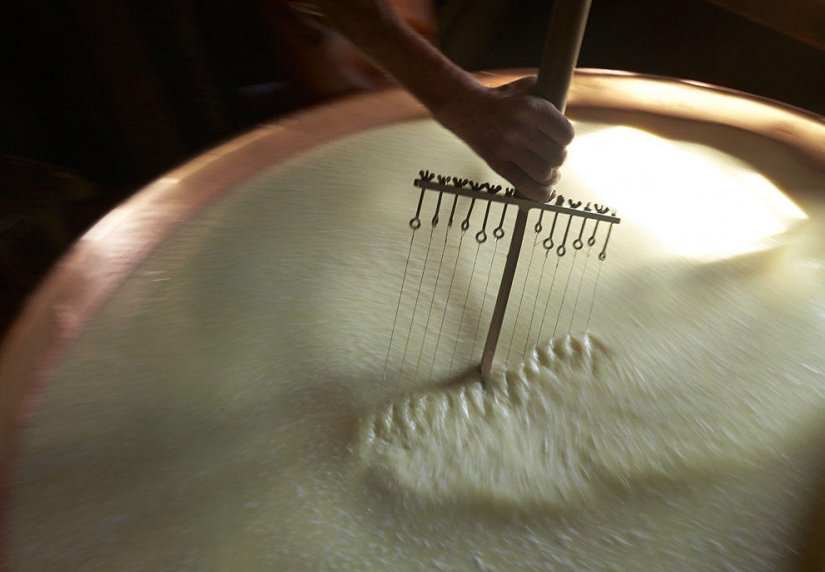
10. Jacques Müritz breaks the curd grains in a vat on a mountain pasture in Gruyere, July 10, 2013.
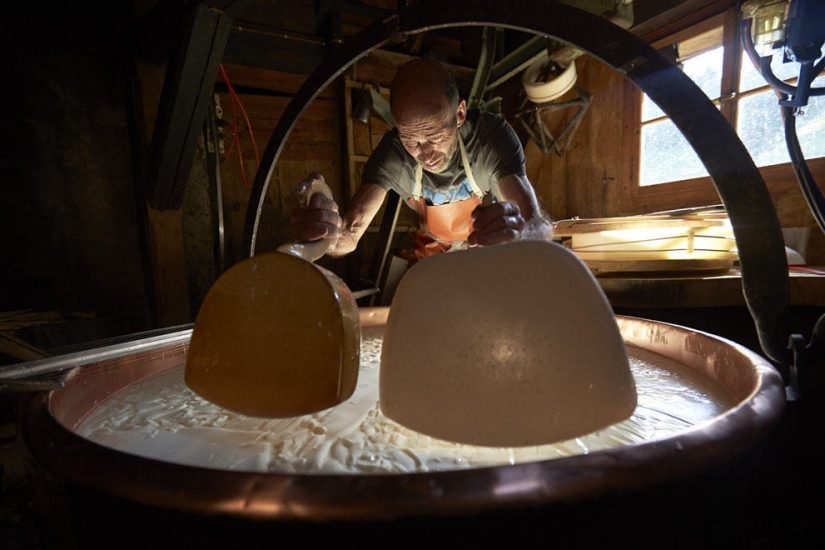
11. Jacques Müritz stirs cheese in a vat in Gruyères on July 10, 2013.
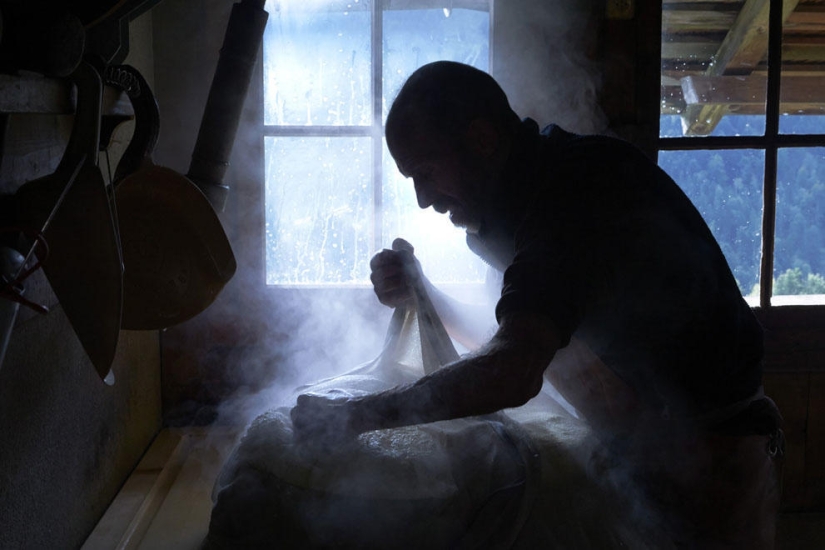
12. Using gauze, Jacques Müritz forms cheese into a large head in a chalet on a mountain pasture, September 20, 2013.
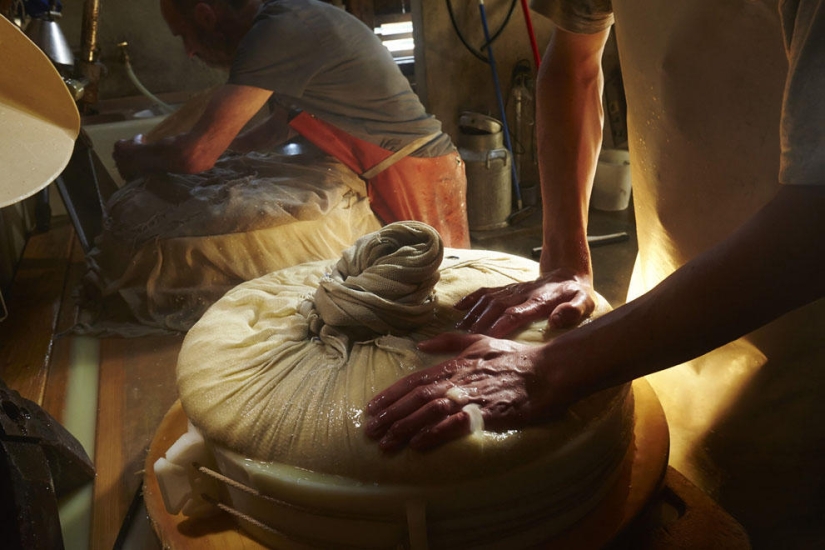
13. Jacques Müritz (left) and his son Alexander press new circles of cheese in a chalet on a mountain pasture in Gruyères, July 7, 2013.
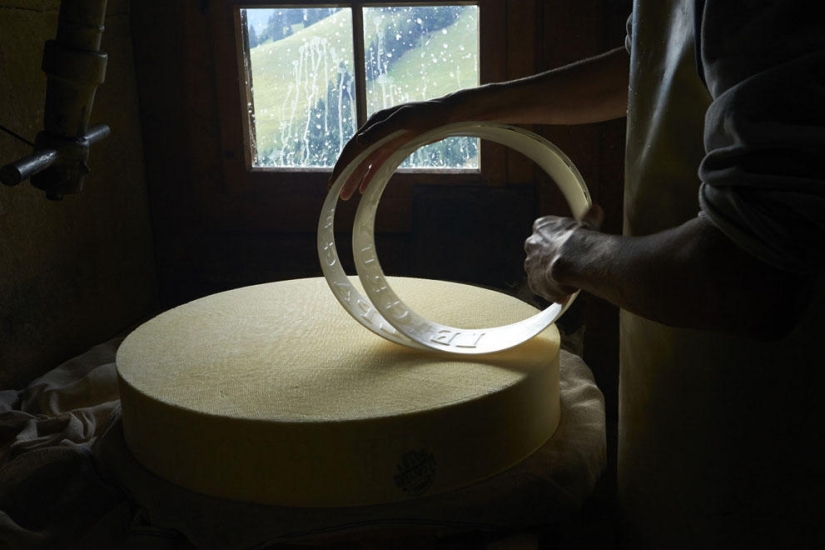
14. Alexander Müritz removes molds after shaping a head of cheese in a chalet on a mountain pasture, September 20, 2013.
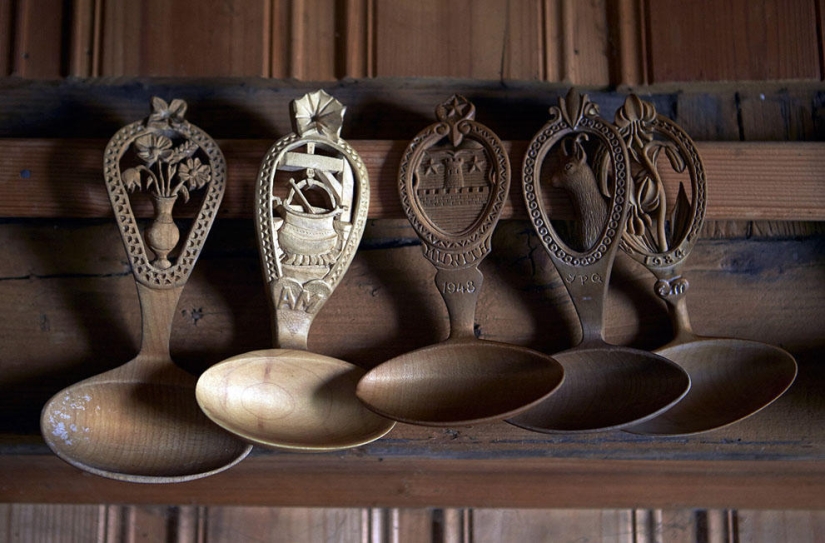
15. Traditional carved wooden spoons hang from hooks in a chalet on a mountain pasture, on July 31, 2013.
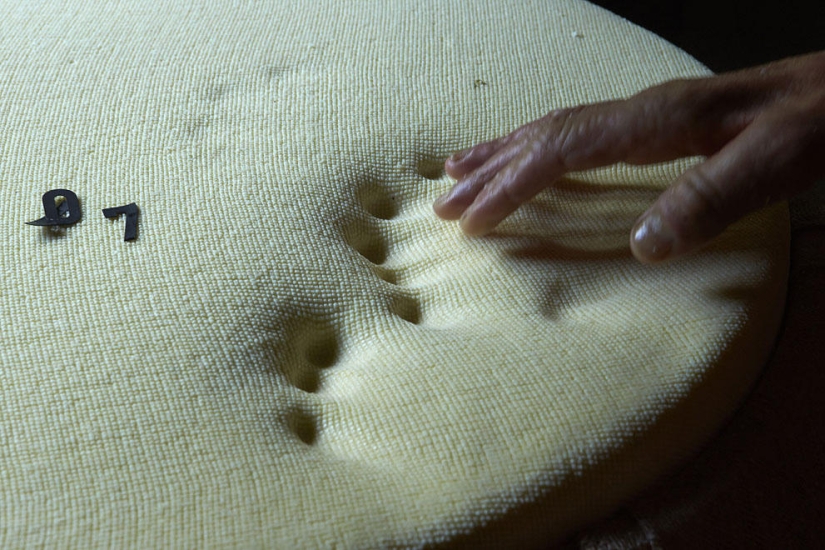
16. Cheese maker Jacques Muritz checks young cheese with his finger on July 10, 2013.
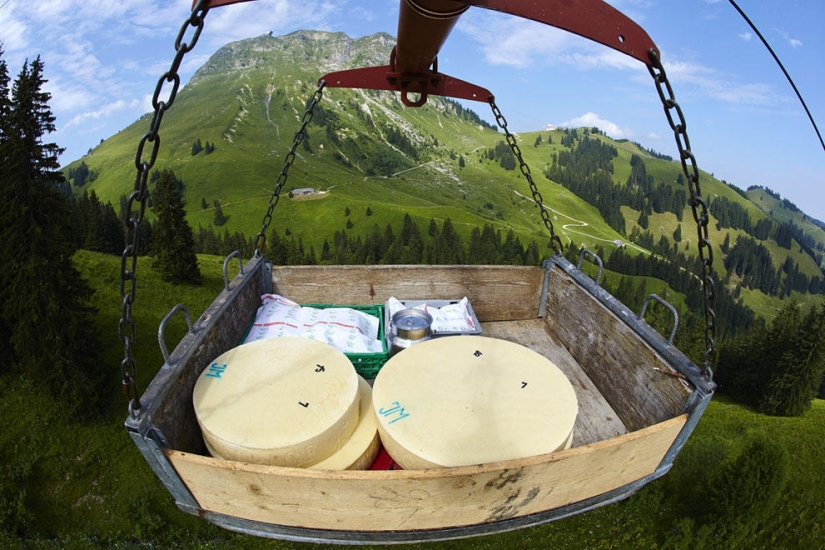
17. Freshly made circles of cheese travel down the cable car to be delivered to the cellar of the castle of Gruyères in Western Switzerland, on July 17, 2013.
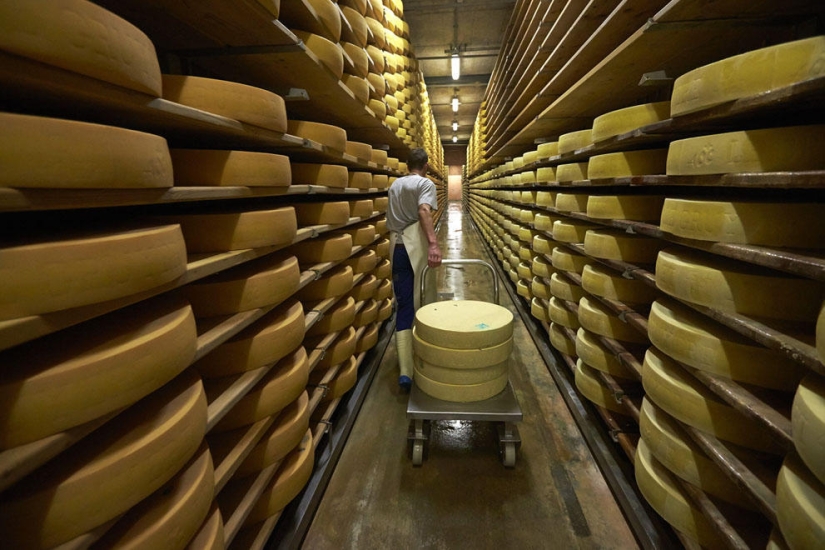
18. Alexander Müritz on a trolley carries heads of cheese for maturation in a cellar in Gruyères, July 7, 2013.
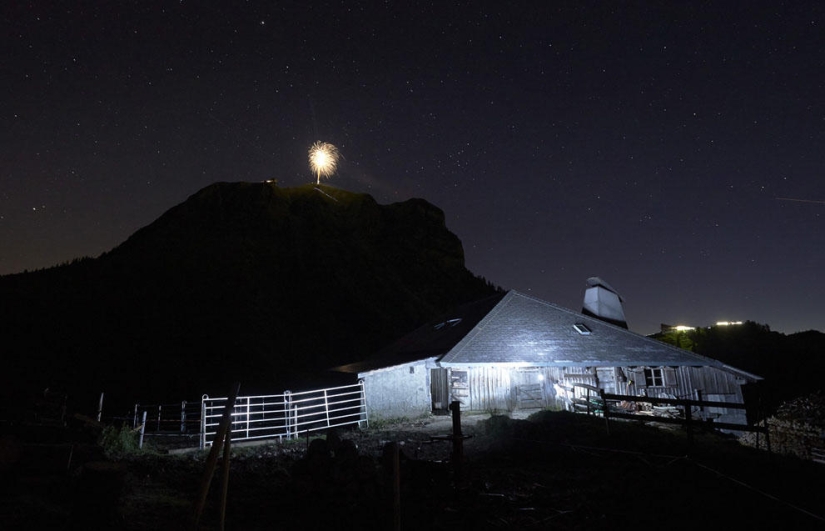
19. Fireworks launched from the top of Mount Moleson on Swiss National Day at the Tsermont chalet on a mountain pasture in Gruyères, July 31, 2013.
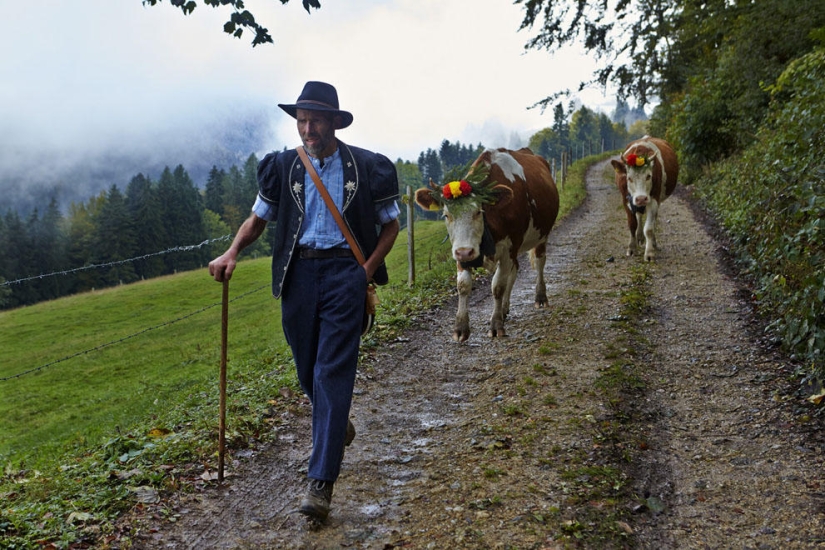
20. Jacques Müritz wanders down the road on the last day of the season in Gruyère, October 12, 2013.
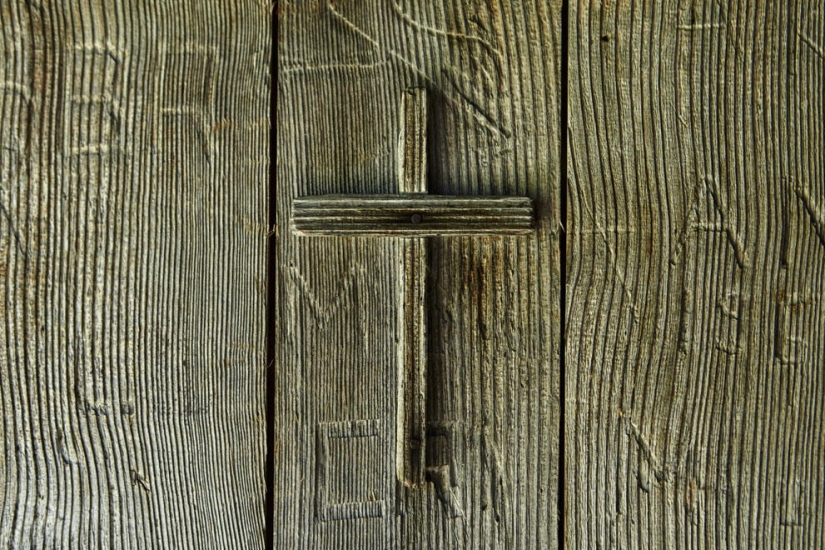
21. A cross above the entrance to the Tsermont chalet on a mountain pasture in Gruyères on July 31, 2013.
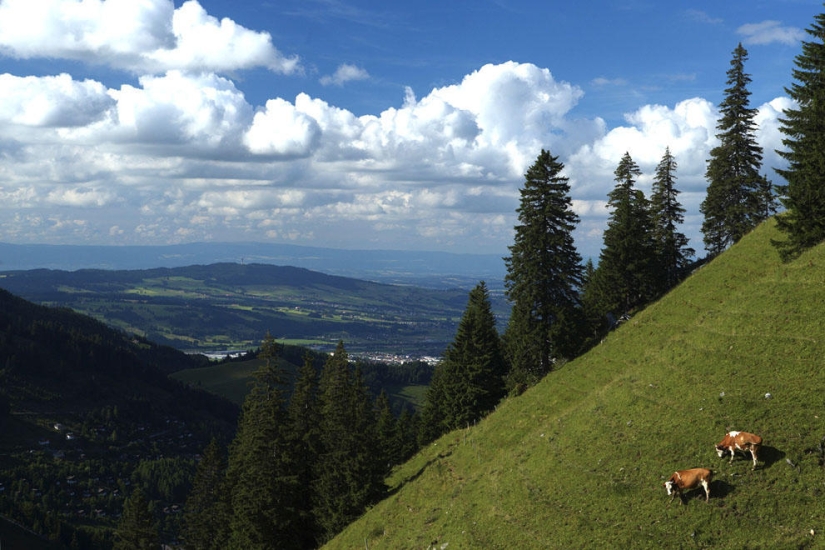
22. Cows graze on a mountain pasture in Gruyères on July 30, 2013.
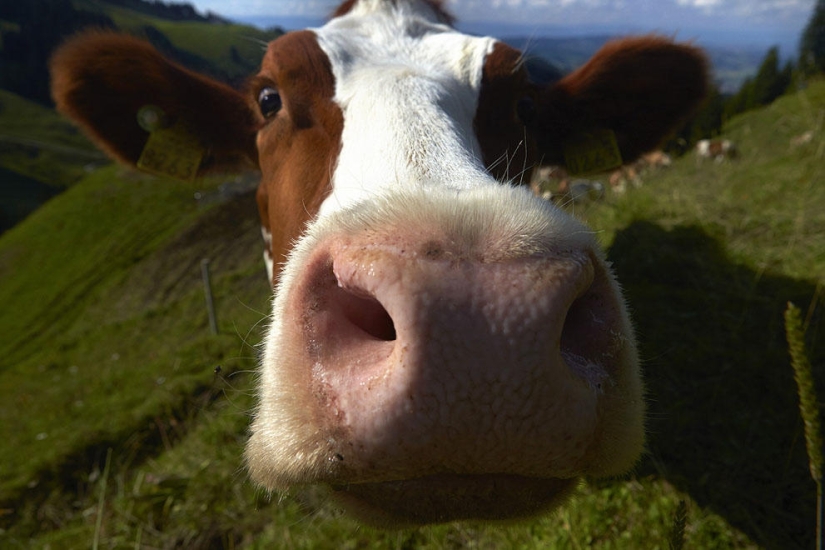
23. A curious cow in a mountain pasture in Gruyères, Switzerland on July 30, 2013.
Keywords: Milk | Cheese | Switzerland
Post News ArticleRecent articles

It's high time to admit that this whole hipster idea has gone too far. The concept has become so popular that even restaurants have ...

There is a perception that people only use 10% of their brain potential. But the heroes of our review, apparently, found a way to ...
Related articles

Bearded men are carriers of more germs than dogs. This conclusion was reached by Swiss scientists after a comparative study of ...

With the beginning of sea voyages, the issue of food was a serious problem for European sailors. In the damp and stuffy ship's ...

Witch hunts claimed the lives of thousands of women-young and old-between the 14th and 18th centuries. Mass hysteria over ...

New Year's is a time to surprise and delight loved ones not only with gifts but also with a unique presentation of the holiday ...